One-Year Foundation Course
One-Year Foundation Course
Listen Reflect Connect Grow
Listen Reflect Connect Grow
An Invitation to the Open Dialogue One-Year Foundation Course - Sydney - 2025/26
Open Dialogue practice is a way of being in relation to others. It relies on authenticity and responsiveness in meeting with people who are at the centre of concern and their networks.
This course is facilitated by Lisa and Mark, who have each been deeply engaged with the development of dialogical practices in and around the social and mental health fields, here in Australia and internationally. A dialogical way of being, for the facilitators, is a way of meeting an individual’s life situation, the resources of the network and the complexity that is life.
This course is for you if are already in the process of developing Open Dialogue practice and want to further develop dialogical and network-oriented ways of being.
This course is also for you if are willing to explore yourself as a relational being and engage in self work to help you be with others in a collaborative, human way.
In this application form, you are invited to share with us your decision to apply for this course – what you hope for yourself, your practice, and your relationships.
With kindness,
Keith Bryant
Chair and Chief Executive, Open Dialogue Centre
An Invitation to the Open Dialogue One-Year Foundation Course
Sydney - 2025/26
Open Dialogue practice is a way of being in relation to others. It relies on authenticity and responsiveness in meeting with people who are at the centre of concern and their networks.
This course is facilitated by Lisa and Mark, who have each been deeply engaged with the development of dialogical practices in and around the social and mental health fields, here in Australia and internationally. A dialogical way of being, for the facilitators, is a way of meeting an individual’s life situation, the resources of the network and the complexity that is life.
This course is for you if are already in the process of developing Open Dialogue practice and want to further develop dialogical and network-oriented ways of being.
This course is also for you if are willing to explore yourself as a relational being to help you be with others in the collaborative, human way that Open Dialogue offers.
In this application form, you are invited to share with us your decision to apply for this course – what you hope for yourself, your practice, and your relationships.
With kindness,
Keith Bryant
Chair and Chief Executive, Open Dialogue Centre
Course Dates
Block 1
12 to 16 May, 2025
Block 2
11 to 15 August, 2025
Block 3
10 to 14 November, 2025
Block 4
2 to 6 February, 2026
Entry Requirements
• A relevant qualification in a mental health, social care, education or related discipline including relevant experience working in a consumer or carer perspective role.
• Current practice in a relevant field
• A letter of Organisational support OR
• Two references plus a plan to complete dialogical practice hours
The course includes a significant component of reading (academic articles), reflective self-work and a learning environment that brings together people from diverse backgrounds (people working in different social service systems, people with lived experience of these systems personally or as family members/supporters, people with diverse experiences of these systems). Therefore, a willingness to fully participate in this kind of learning environment is necessary.
We welcome a diverse and inclusive training community, so please contact us at training@opendialoguecentre.org.au if you have any questions regarding the requirements.
Entry Requirements
• A relevant qualification in a mental health, social care, education or related discipline including relevant experience working in a consumer or carer perspective role.
• Current practice in a relevant field
• A letter of Organisational support OR
• Two references plus a plan to complete dialogical practice hours
We welcome a diverse and inclusive training community, so please contact us at training@opendialoguecentre.org.au if you have any questions regarding the requirements.
Level 1 – Foundation course
Dialogical practice hours during the training | ||
| Training Blocks x 4 Theory studies Supervision of dialogical practice Relational/self-work | 160hrs | |
| Dialogical practice hours during the training | 100hrs | |
| Reading | 40hrs | |
| Peer Study group | 20hrs | |
| Coursework – reflective writing posts | 40hrs | |
| Coursework – final project | 40hrs | |
| Total Hours | 400hrs | |
Satisfactory completion
Satisfactory completion of the course will require meeting all three of the following:
1. Attendance at training blocks: 20 training days (see below for how absences will be approached), including completion of all in-training activities
such as sharing Family of Origin work and presenting direct practice material for supervision
2. Practice hours: Completion of 100 hours of logged practice across the 10 months, at least 70% of which is to be direct practice in the form of Open
Dialogue Network meetings (we encourage more than 70% to be direct practice)
3. Course work: Completion of written coursework between training blocks, including both 17 reflective posts and a Final Project.
While reading assigned materials and attendance at peer study groups do not form part of the satisfactory completion criteria, we strongly encourage that you engage with these elements to get the most out of the course.
Absences
Trainees are expected to be present for all the face-to-face training (20 days). For any time missed, compensatory work will be agreed upon with the individual participant. In general, a maximum of two days of non-health related absences are allowed. Absences exceeding 20% (more than four days in total) due to health and non-health related issues will need further discussion and consideration by the course facilitators and may include not completing the course / needing to retake the course.
Entry Requirements
• A relevant qualification in a mental health, social care, education or related discipline including relevant experience working in a consumer or carer perspective role.
• Current practice in a relevant field
• A letter of Organisational support OR
• Two references plus a plan to complete dialogical practice hours
The course includes a significant component of reading (academic articles), reflective self-work and a learning environment that brings together people from diverse backgrounds (people working in different social service systems, people with lived experience of these systems personally or as family members/supporters, people with diverse experiences of these systems). Therefore, a willingness to fully participate in this kind of learning environment is necessary.
We welcome a diverse and inclusive training community, so please contact us at training@opendialoguecentre.org.au if you have any questions regarding the requirements.
At the end of the course, participants will be able to:
- Describe the Open Dialogue approach, its principles and its origins
- Demonstrate the twelve key elements of dialogic practice
- Understand the underlying theory of systemic and dialogical practice with families, networks and organisations
- Recognize the importance of trust, self-disclosure and the use of lived experience in supporting others
- Examine social justice issues as they relate to trauma and emotional distress
- Practice Open Dialogue as an ethical, human rights-based approach to mental health
- Adapt the use of dialogical practices to their own personal styles and settings.
Level 1 – Foundation course
Dialogical practice hours during the training | ||
| Training Blocks x 4 Theory studies Supervision of dialogical practice Relational/self-work | 160hrs | |
| Dialogical practice hours during the training | 100hrs | |
| Reading | 40hrs | |
| Peer Study group | 20hrs | |
| Coursework – reflective writing posts | 40hrs | |
| Coursework – final project | 40hrs | |
| Total Hours | 400hrs | |
Satisfactory completion
Satisfactory completion of the course will require meeting all three of the following:
1. Attendance at training blocks: 20 training days (see below for how absences will be approached), including completion of all in-training activities
such as sharing Family of Origin work and presenting direct practice material for supervision
2. Practice hours: Completion of 100 hours of logged practice across the 10 months, at least 70% of which is to be direct practice in the form of Open
Dialogue Network meetings (we encourage more than 70% to be direct practice)
3. Course work: Completion of written coursework between training blocks, including both 17 reflective posts and a Final Project.
While reading assigned materials and attendance at peer study groups do not form part of the satisfactory completion criteria, we strongly encourage that you engage with these elements to get the most out of the course.
Absences
Trainees are expected to be present for all the face-to-face training (20 days). For any time missed, compensatory work will be agreed upon with the individual participant. In general, a maximum of two days of non-health related absences are allowed. Absences exceeding 20% (more than four days in total) due to health and non-health related issues will need further discussion and consideration by the course facilitators and may include not completing the course / needing to retake the course.
Course Composition
Supervision is included in the training blocks, in the form of reflective group processes. Each participant will be allocated time to share some of their dialogical practice with their supervision group, in processes designed to support the development and learning of dialogical practice.
Participants will be required to share an example of their practice, in the form of video or audio material. The course facilitators will support you in your preparation for these supervision processes.
This component of the training aims to support you to explore your meaningful relationships and invite you to think about your life and tell your story, with the intention of deepening your work as a dialogical practitioner. The family of origin work supports understanding the relationships between significant members of your family, experiences/events in your family, and the meanings given to them. The selfwork supports the development of your identity as an Open Dialogue practitioner, the use of self and reflecting practice, while also fostering connectedness and trust with co-workers/team members. Most of this Family of Origin/Relational Self-Work will be shared within the small supervision groups, although some will be shared with the larger group as part of the coursework component of the training.
Participants will be asked to form a smaller peer group of 3 – 5 members. These groups will be organised at the first meeting and will be a subset of the Supervision Groups. The peer group has two main purposes:
a) Support: The group is invited to spend time with each other throughout the 5- day blocks to support self-care, collective care, and connection
b) Peer learning/study group: The group work together to meet the study/reading requirements of the course and support each other’s learning.
At the first Block, we request each of the three supervision groups to nominate a Participant Representative who will act as a key link between participants, facilitators, and the Open Dialogue Centre. At any time during the course (including between blocks), participants may share their questions, concerns, or worries with any of the three Participant Representatives.
We ask that all three Participant Representatives make a commitment of one-hour after each of the teaching blocks to meet online with Shubhangi Kaushik from the Open Dialogue Centre to reflect on their experience, provide feedback to assist with planning for future meetings and discuss any issues that may have arisen.
The Open Dialogue Centre and facilitators are committed to open communication and responsiveness to any issues arising.
This course has been designed to integrate each participant’s learning into their everyday life, work practices, and settings. Each participant is required to identify practice opportunities for application of the learning from the course in their workplace or through partnering with other colleagues from their networks. It is expected that each participant will be able to demonstrate 100 practice hours for completion of this course. Open Dialogue Network Meetings are to make up a minimum of 70% of the logged practice hours. There is flexibility around the remaining 30%, with broader applications of dialogical processes and practices being acceptable. If this will present a challenge for you, we invite you to start discussions with your workplace, networks, course trainers and fellow course attendees to create opportunities to meet this requirement of the course.
Each participant is required to log their practice. It is suggested that participants spread the practice across the year to make the most of the practice-based learning. Participants are required to submit their progressive practice logs at the beginning of each block to a facilitator. Participants will also receive an electronic copy of the log template.
For each block of training there will be required reading material, usually 3-4 articles for each block. Readings will be provided one week following each training block, with the intention that the readings are responsive to participants’ learning needs.
You will be expected to read these articles and discuss them in your peer groups, which will meet between the teaching blocks. These peer groups are expected to meet for approximately 7 hours in the time between each of the training blocks, totally 20 peer group study hours over the course. Peer groups will be responsible for organising their own meetings, including deciding on the frequency and length of meetings, and whether to meet in person or online. At the end of each peer group study meeting, the group will complete a brief summary of themes explored from the course readings (Group Meeting Summary template to be supplied.) These records are to be submitted to a facilitator at or before the beginning of each Training Block.
The coursework requirements for this course are two-fold (more detail for each is provided below):
1. Seventeen reflective writing posts (300 – 400 words each) to be completed independently and submitted via the online learning platform Padlet between course blocks.
2. A final project, to be submitted after the final teaching block. There is scope for final projects to be completed in groups.
Seventeen reflective writing posts will be completed independently and submitted online between the training blocks:
• Seven between Blocks 1 & 2;
• Five between Block 2 & 3; and
• Five between Block 3 & 4.
Reflective writing is a form of writing that encourages individuals to explore their thoughts, feelings, and experiences. It involves introspection and critical analysis, often focusing on personal growth, self-awareness, and learning. These reflective posts are not assessed but will be visible for all the trainers and trainees to read and should be personal without being private.
You are encouraged to read and reflect on each other’s posts, creating an ongoing dialogue as part of our learning community.
Each course participant is required to complete a final project, to be submitted after the final Block of the training. As an indication of the size and scope of this project, we estimate that each participant will spend 40 hours working on this project (50% of the total coursework time). There is considerable flexibility and scope for what you might choose to focus on for your final project, including the format in which it is completed (e.g. you may choose to write an academic essay, or create a resource for your workplace or community, or make a visual record of your own personal journey). Creativity is encouraged but even more so we are hoping that your final projects will be useful resources beyond the training.
We strongly encourage you to begin thinking about your final project right from the start of the training. You will need to gain approval from the trainers for your final project idea – we will spend some time in the second block discussing final project ideas, and dedicated time will be set aside in the third block for each participant to share their plan for their final project with their supervision groups. You are encouraged to discuss your ideas with your fellow course participants, including your peer group.
The way in which you submit your final project is open for negotiation but the final date for submission will be set during the first block.
Taking inspiration from Open Dialogue trainings internationally (including Peer-supported Open Dialogue in the UK) and building on the growing peer workforce and the importance of lived experience in mental health systems change in Australia, this training structurally embeds lived experience (both consumer and family/carer) leadership and partnership and addresses these as a theme throughout the training.
Course Application details
Course dates:
Block 1 – 12 to 16 May, 2025
Block 2 – 11 to 15 August, 2025
Block 3 – 10 to 15 November, 2025
Block 4 – 2 to 6 February, 2026
Location:
Macquarie Graduate School of Management (MGSM)
1 Executive Road, Macquarie Park, NSW, 2113
Cost:
$6050 ($5500 + GST)
Applications Open:
15 September, 2024
Applications Close:
7 March, 2025
Applicant Interviews:
16 February to 16 March, 2025
Notification:
Applicants will be notified of the status of their enrolment by 25 March, 2025
Entry requirements:
Letter of organisational support OR Two references detailing suitability plus dialogical practice plan should be emailed to training@opendialoguecentre.org.au at the time your registration is completed.
**Please note that the course will only run if the minimum requirement of 16 students is met.***
Payment
Payment should NOT be completed until you have been notified that your application has been accepted.
Your placement will then be finalised upon receipt of payment.
Payment:
For direct transfer Bank Details are:
BSB: 082-356
Account: 24 100 7959
Please include your NAME as the reference
If you require an invoice for payment please advise via email
training@opendialoguecentre.org.au
Please note your booking will not be finalised until payment is received.
For Credit Card payments please select the Stripe payment button below.
Facilitators
Open Dialogue Centre has access to experienced and well respected facilitators of Open Dialogue training. There are generally 2- 3 facilitators (based on final course numbers) for each One-Year Foundation Course.
In Sydney the facilitators are Mark Hopfenbeck and Lisa Dawson.
Read more about our facilitators below.
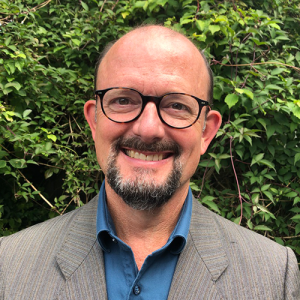
Mark Hopfenbeck, a distinguished social anthropologist, serves as an assistant professor at the Norwegian University of Science and Technology. His expertise in health and social policy extends to his role as a visiting fellow at London South Bank University and an individual partner at Oxford University’s Collaborating Centre for Values-based Practice. With a focus on mindfulness and relational welfare, Mark is deeply involved in research to enhance mental health care, including crisis intervention and the Open Dialogue approach, both nationally and globally.
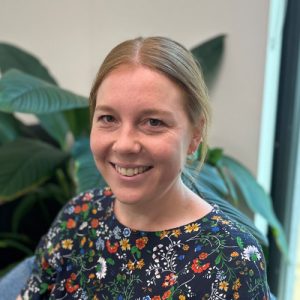
Lisa Dawson is a Senior Clinical Psychologist, family therapist, and researcher who has been working with young people with eating disorders and their families for over a decade. She is currently the Team Leader of the Eating Disorder Intensive Program for Adolescents at Sydney Children’s Hospital. Lisa is trained as an Open Dialogue trainer and her supervision and clinical work emphasises the values of dialogical practice where openness, social inclusion, and genuine user and family involvement in decision-making processes is emphasized.
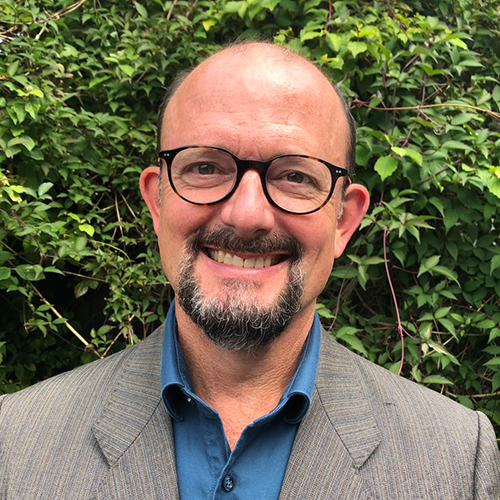
Mark Hopfenbeck, a distinguished social anthropologist, serves as an assistant professor at the Norwegian University of Science and Technology. His expertise in health and social policy extends to his role as a visiting fellow at London South Bank University and an individual partner at Oxford University’s Collaborating Centre for Values-based Practice. With a focus on mindfulness and relational welfare, Mark is deeply involved in research to enhance mental health care, including crisis intervention and the Open Dialogue approach, both nationally and globally.
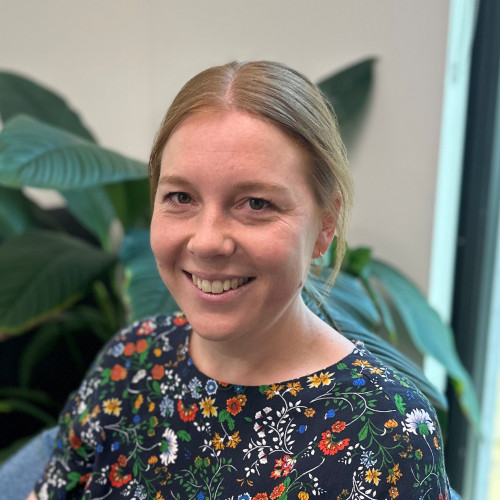
Lisa Dawson is a Senior Clinical Psychologist, family therapist, and researcher who has been working with young people with eating disorders and their families for over a decade. She is currently the Team Leader of the Eating Disorder Intensive Program for Adolescents at Sydney Children’s Hospital. Lisa is trained as an Open Dialogue trainer and her supervision and clinical work emphasises the values of dialogical practice where openness, social inclusion, and genuine user and family involvement in decision-making processes is emphasized.
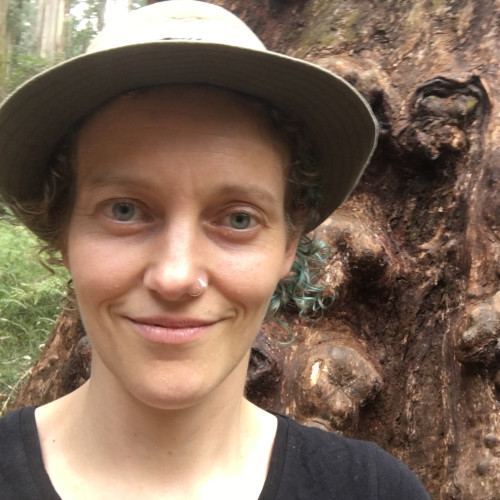
Flick Grey, a freelance consultant, has lived experience of multiplicity and extensive engagement in mental health systems and “alternatives”. With a background in social theory, law, social work, and linguistics, Flick works predominantly as a trainer, researcher, and supervisor. Her work focuses on alternatives to coercion in mental health, drawing on Intentional Peer Support, Open Dialogue, Alternatives to Suicide, Mad Studies and Warm Data. Flick has travelled internationally, thanks to a SANE Hocking Fellowship, to explore the intersection between peer work and Open Dialogue.
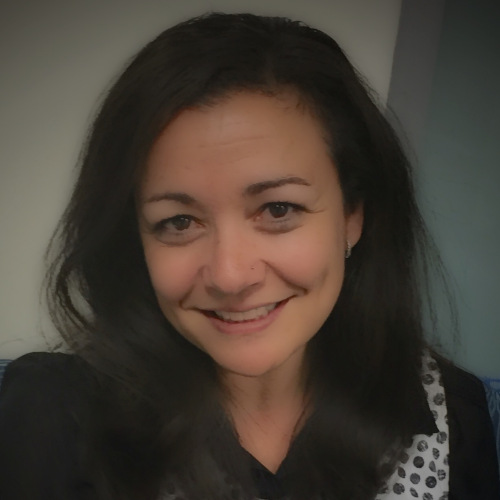
Rachel Barbara-May is a social worker and open dialogue practitioner who has worked for many years in child and youth mental health. Rachel is currently leading the adoption of dialogical practice at Alfred’s Mental Health and Addiction services, particularly in programs for those experiencing eating difficulties, within the youth early psychosis program and the Women’s Recovery Network. She is also the co-host of the Extremely Human podcast and is passionate about anti-oppressive and anti-pathologizing approaches to mental health care.

Mark Hopfenbeck, a distinguished social anthropologist, serves as an assistant professor at the Norwegian University of Science and Technology. His expertise in health and social policy extends to his role as a visiting fellow at London South Bank University and an individual partner at Oxford University’s Collaborating Centre for Values-based Practice. With a focus on mindfulness and relational welfare, Mark is deeply involved in research to enhance mental health care, including crisis intervention and the Open Dialogue approach, both nationally and globally.

Flick Grey, a freelance consultant, has lived experience of multiplicity and extensive engagement in mental health systems and “alternatives”. With a background in social theory, law, social work, and linguistics, Flick works predominantly as a trainer, researcher, and supervisor. Her work focuses on alternatives to coercion in mental health, drawing on Intentional Peer Support, Open Dialogue, Alternatives to Suicide, Mad Studies and Warm Data. Flick has travelled internationally, thanks to a SANE Hocking Fellowship, to explore the intersection between peer work and Open Dialogue.

Rachel Barbara-May is a social worker and open dialogue practitioner who has worked for many years in child and youth mental health. Rachel is currently leading the adoption of dialogical practice at Alfred’s Mental Health and Addiction services, particularly in programs for those experiencing eating difficulties, within the youth early psychosis program and the Women’s Recovery Network. She is also the co-host of the Extremely Human podcast and is passionate about anti-oppressive and anti-pathologizing approaches to mental health care.

Lisa Dawson is a Senior Clinical Psychologist, family therapist, and researcher who has been working with young people with eating disorders and their families for over a decade. She is currently the Team Leader of the Eating Disorder Intensive Program for Adolescents at Sydney Children’s Hospital. Lisa is trained as an Open Dialogue trainer and her supervision and clinical work emphasises the values of dialogical practice where openness, social inclusion, and genuine user and family involvement in decision-making processes is emphasized.

